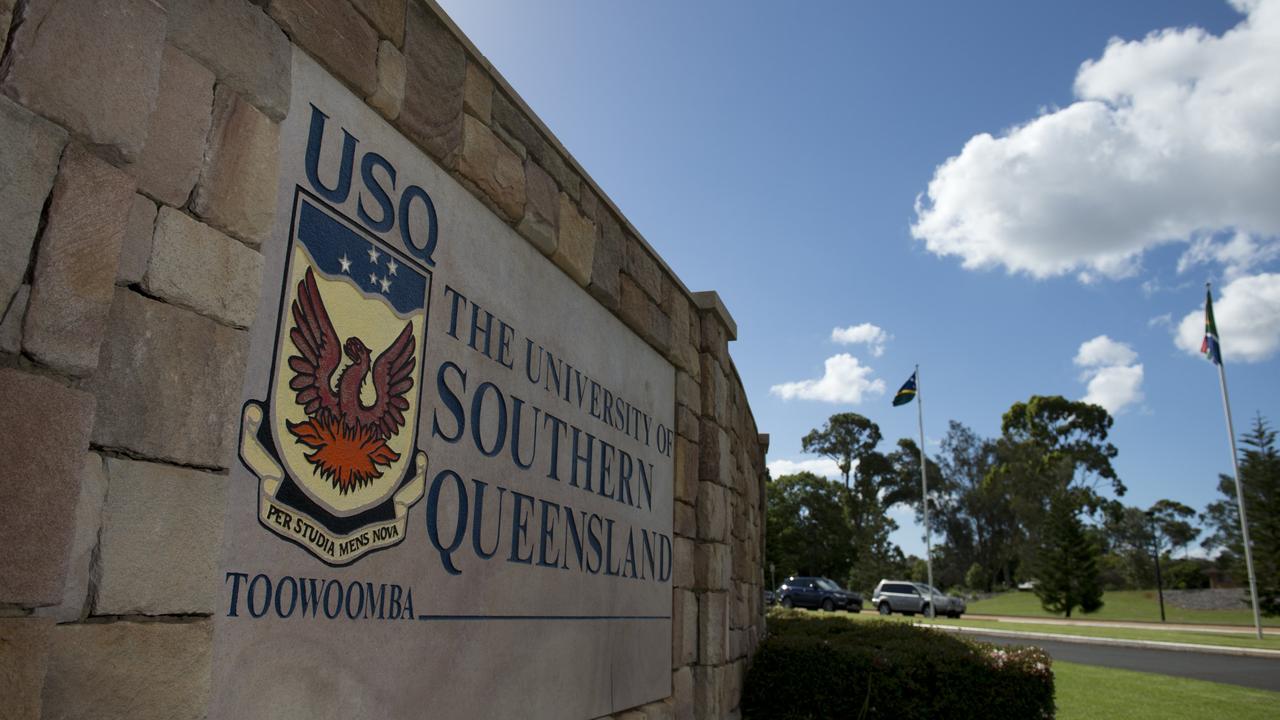Queensland university nursing students on front line of battle with AI
Thousands of Queensland university students have been left angry after claiming they’ve been falsely accused of using AI in their assessments, as universities across the state scramble to maintain academic integrity and fairness with the growth of the technology.
Thousands of university students across Queensland under investigation for using artificial intelligence claim the lengthy process to determine the integrity of their assessments is delaying their studies and potentially graduations.
The rise of generative AI and its increased ability to reproduce written text in the past two years has created a new battleground for schools and universities, with most now using an AI-detection software called Turnitin, or something similar, which tells educators the probability of AI being used in assessments.
This has resulted in a large number of students being accused of using the tool in producing their own original work, and submitting it for assignments.

A nursing student at the University of Southern Queensland is leading the charge against unfair claims of plagiarism after she was accused of using AI twice in her first semester, and says she is one of hundreds across her the university who have been under investigation, sparking outrage and petitions.
She revealed she reached out to the advocacy unit, who helped her through the process to an academic integrity meeting, before she was then given the choice to rewrite the paragraphs or wait six weeks for it to be assessed.
Not wanting to be named for fear of having their prospective career tarnished, the student described the investigations as like being part of a “crazy” experiment, taking months to resolve.
“Because of that I knew you’ve got to keep all of the drafts,” she said.

Her experience became useful two months after she submitted her first assignment when she received an AI accusation letter for it.
“I was like what the f--k,” she said.
This time she had the meeting online and sent the assessor the nine drafts she had emailed to herself and was told how they could see how much time she had spent on it, she said.
“If it’s AI, why would I spend hours doing this?” she said.
When one draft came up as 94 per cent AI generated, she then gave her assessor control of her laptop to go through her apps to check if she had AI running in the background, she said.
“It was so weird and they didn’t find what they were looking for,” she said.
A month later she received a Category 1 outcome, no mark reduction but a warning on record, stating: “It is noted that while some of your drafts have no AI generated content, your ‘RAM essay draft 4’ is flagged as 94 per cent AI generated which you were unable to explain, nor could you explain why your final submission is flagged as 68 per cent AI generated.”
“They ask me to explain why it is coming up like this and I’m like Turnitin software is a secret to me, I don’t know how it works,” she said.
It was then she started the appeal process again, as well as the petition, and connected with other students who had similar experiences.
Turnitin Asia Pacific regional vice president James Thorley said the Turnitin writing detection tool was designed as a data point, and was not a sole indicator of generative AI use.
It’s an issue that’s being faced at universities across Queensland.
“We also are conscious of the in-built biases in current products, present through the design of the training of large language models,” a statement from QUT said.

A UniSQ student representative, also a nursing student wanting to remain unnamed, said he had so many friends and classmates contact him about AI accusations from the university.
Asked about how many AI accusations the university had received compared to last year, and how long the investigation process was taking, a UniSQ spokesman did not provide the numbers, and instead said the processes were in place to “protect the integrity of the qualifications awarded by the university”.
The UniSQ spokesman said there was a range of activities used to mitigate unauthorised AI use, including changes to policies, staff, and student guidelines, and assessments were being reviewed to evaluate their AI risk.
A University of Queensland spokeswoman said they were taking a “leading role” as generative AI presents opportunities and challenges in both teaching and assessment.
UQ academics were working with other experts to lead and guide the education sector on all levels to adapt, including designing assessments which can maintain academic integrity, they said.
Charles Darwin University director of learning futures Professor Michael Sankey said upholding academic integrity meant finding cheating behaviours, and studies showed that 8 per cent of students self-confessed to cheating before the invention of mainstream generative AI.
Generative AI meant a change to more invigilated, or supervised, assessment in universities, which would ultimately be like “turning the titanic” Mr Sankey said.
“We have to embrace generative AI, it’s there to help people become more productive,” he said.
“Academics should be helping students push the boundaries of their subject matter, not just regurgitate knowledge.
“That’s when we start to see these tools coming into their own and being useful not just to the students but also to society.”
More Coverage
Originally published as Queensland university nursing students on front line of battle with AI




